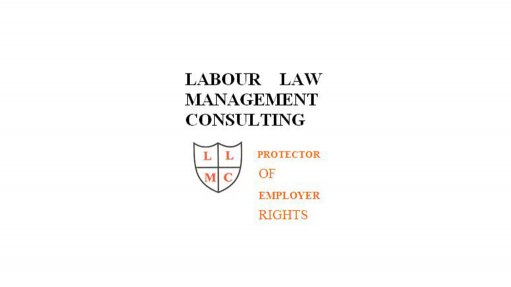
In certain special circumstances employees are entitled to be represented at disciplinary hearings by external people such as trade union officials and legal experts. For example, in the case of Molope vs Mbha and others (2005, 3 BLLR 267) the Labour Court found that employees are entitled to be represented by a colleague, lawyer or union official.
Likewise, employers are entitled to get external experts to chair disciplinary hearings. In the case of MEWUSA obo Mbonambi vs S Bruce cc (2005, 8 BALR 809) the dismissed employee refused to attend his disciplinary hearing and claimed that the employer’s use of an external chairperson was procedurally unfair. The arbitrator stated that it was established law that employers were entitled to appoint outsiders to preside over disciplinary hearings.
Not only is it perfectly fair and legal for an external expert to be asked to chair the hearing it is also desirable because such expertise helps to ensure fairness.
A great many employers have had their dismissal decisions overturned at the CCMA not because the dismissal was considered inappropriate but because the chairperson, an internal employee or manager was unskilled in the chairing of hearings.
In the case of Schoon Mahumani vs MEC, Department of Finance (2003 Contemporary Labour Law Vol 13 No.4 2003) the High Court of Appeal decided that the chairperson of a disciplinary enquiry cannot rely on the disciplinary code alone but must also take into account the provisions of the Promotion of Administrative Justice Act 3 of 2003. Also, the Court decided that the employer’s refusal to allow the accused the right to legal representation at an internal disciplinary hearing was unconstitutional. This startling decision strongly indicates that the Courts see internal disciplinary hearings as very formal processes.
Furthermore, where an employee is suspected of poor performance it is not enough to have an informal discussion with the employee about the problem and then to fire him/her the next week. The LRA sets down specific steps to be followed before a dismissal for poor performance can even be considered. For example, the employee must have received sufficient evaluation, guidance, counselling and training. Even then, the employee’s poor performance must have continued after he/she received the said evaluation and guidance. Furthermore, to justify dismissal there needs to be an investigation into the alleged poor performance and proof that there is no other way of remedying the performance problem.
In such cases, the officials who carry out the corrective procedure need to be highly skilled in legal procedure in order to make sure that each and every legal right of the employee is strictly adhered to. A presiding officer unskilled in chairing hearings risks breaking rules of impartiality that he/she is not even aware of. This is likely to destroy the employer’s case at the CCMA.
Therefore, managers must either be thoroughly trained in disciplinary process or the employer must hire a reputable labour law expert to chair its hearings.
To observe our experts debating hot labour law topics please go to www.labourlawadvice.co.za and click on the Labour Law Debate item in the menu.
Written by Ivan Israelstam, Chief Executive of Labour Law Management Consulting. He may be contacted on (011) 888-7944 or 0828522973 or on e-mail address: ivan@labourlawadvice.co.za. Go to: www.labourlawadvice.co.za